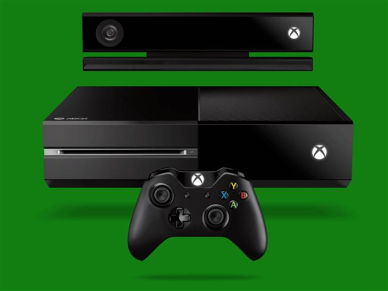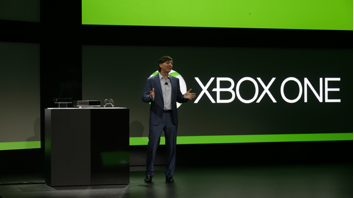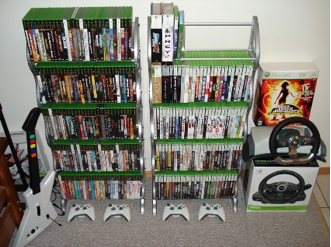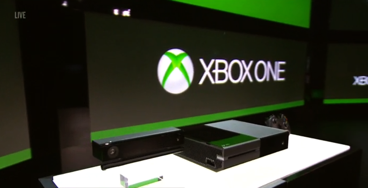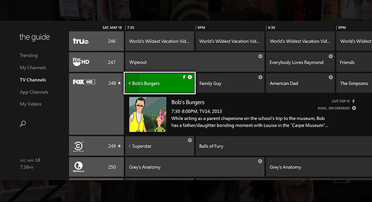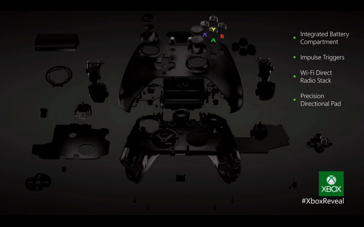Earlier this week, Microsoft unveiled the Xbox One, the long awaited succesor to the Xbox 360. In terms of console development, this installment has been a long time coming—the 360 debuted in 2005, eight long anticipation-filled years ago (if you want to feel old, that’s enough time to go through high school and a four year college). For comparison, the PS3 launched a mere five years after the PS2, and offered so many new features and awesome gizmos that it was practically an entirely fresh system.
So now the question on everybody’s minds is this: now that Microsoft has had nearly a decade to hammer out the kinks and build the “console of the future,” is it going to live up to expectations, or just offer what’s essentially a 360 bundled up in a shinier package? Let’s look at what we know from the unveiling.
Voice Commands
Possibly the most impressive feature from the Xbox One announcement video on May 21st is how it allows the user to activate the console using voice commands. Standing in front of the box and saying, “Xbox On” will instantly turn on the device and take you to the home screen (which looks essentially the same as the one on the Xbox 360). This obviously points to the ability to use voice commands for other features, such as switching between modes—say, to switch from game mode to online TV.
No Backwards Compatibility
This is a big one for die hard genre fans, players who love going back to older games and replaying through the experience. But unfortunately, that won’t happen with the Xbox One—it’s not compatible with that library of 360 games you have, which means no weekend Halo 3 campaign parties, or trying to hit all those secret rooms you missed in your first five play-throughs of Elder Scrolls IV: Oblivion. And that leads us to the next point:
Limited Offline Play
When PC games Starcraft 2 and Diablo 3 were released, one of the major feature changes was that there was no way to play the game offline. Even if you were playing through the campaign, you still needed an active internet connection for the game to run. It sucked. There had been rumors about the Xbox One, back when it was called the Xbox 720 by those of us who didn’t know better, that it was going to use the same ploy. Well, the good news is it’s not—sort of. The Xbox One doesn’t need to be connected constantly, but it still needs to log in at least once every 24 hours, even for single-player games.
A Library of Features
Out of all the added features the Xbox One announcement video clued us in to, none seem particularly groundbreaking. In fact, most just seem tacked on to keep the Xbox in the running with the likes of Sony and Nintendo. Let’s start with the Blu-ray player—a great improvement, but the PS3 gave us that nearly seven years ago. Then there’s the new 1080p Kinect camera giving it a 60 percent wider range of vision, which is apparently important because the Kinect is going to be an “essential part of the platform,” according to Microsoft. But that’s a patented Wii feature already.
And finally, the Xbox One will support Skype. And true, that will help us communicate with our friends, but, well, isn’t that what Xbox Live did anyway? The Xbox One is crammed to bursting point with technology, and that’s great, but as Douglas Adams said, “We are stuck with technology when what we really want is just stuff that works.” Hopefully, the Xbox One gives us both.
Hardware Specs
Flashy interfaces and features aside, in the end it all boils down to the nitty gritty hardware. How does the Xbox One stack up? For starters, it will have an 8-core CPU with 500GB of storage and 8GB RAM. We’re pretty excited about those specs. Additionally, it will have standard 802.11 Wifi connectivity (the same as the 360, but as a standard feature) and feature USB 3.0, which isn’t any world-changing improvement, but it will definitely improve data speeds.
Overall, what that means is better graphics, faster load times, richer and more immersive worlds, and more impressive AI—which, honestly, is something we’ve come to expect from a new console. Will it change the world? Lead to a universal shift in gaming consciousness? Probably not. Will it keep us entertained? Absolutely.
About Ali Gajani
Hi. I am Ali Gajani. I started Mr. Geek in early 2012 as a result of my growing enthusiasm and passion for technology. I love sharing my knowledge and helping out the community by creating useful, engaging and compelling content. If you want to write for Mr. Geek, just PM me on my Facebook profile.








